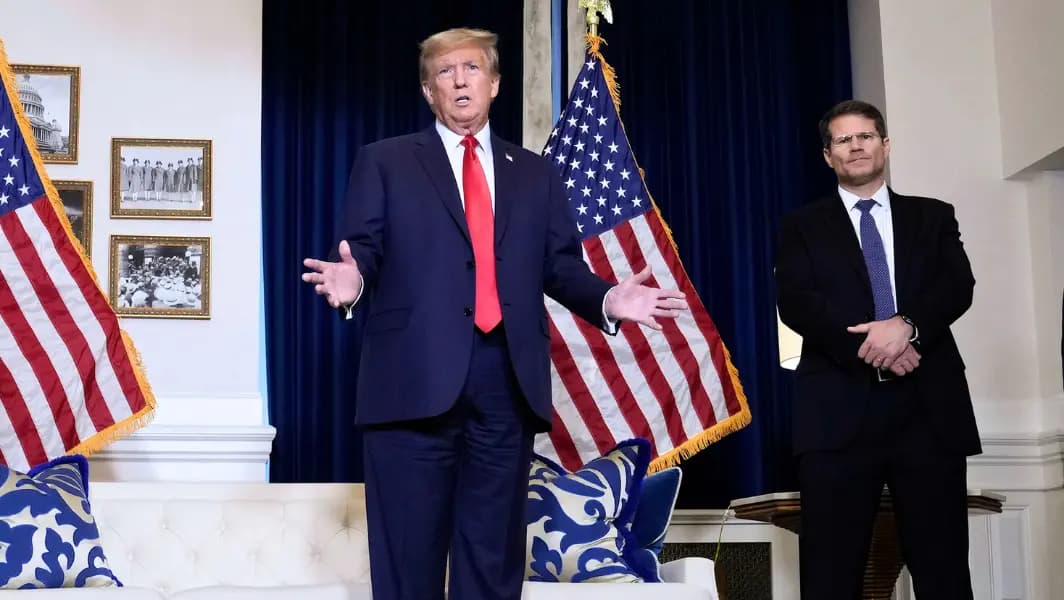
Trump's "Gold Cards" Offer: A $5 Million Ticket to U.S. Citizenship and Why Business Owners Should Pay Attention
Gold card will replace the existing EB-5 immigrant investor visa program
President Donald Trump has reportedly proposed a "Gold Card" program, offering U.S. citizenship to wealthy migrants willing to invest $5 million in the country. This proposal, reminiscent of existing investor visa programs like the EB-5, raises questions about its motivations and potential implications for the U.S. economy, tax structure, and immigration system.
The Rationale Behind the "Gold Cards" Proposal
The idea of offering citizenship or residency in exchange for significant financial investment is not new. Countries like Canada, Portugal, and Malta have similar programs designed to attract high-net-worth individuals who can contribute to economic growth. Trump's proposal, however, takes this concept to a new level by explicitly tying citizenship to a $5 million investment.
One possible reason for this proposal is to stimulate the U.S. economy by injecting substantial capital into key sectors. By targeting wealthy individuals, the program could attract entrepreneurs, investors, and business leaders who can create jobs, fund startups, and drive innovation. Additionally, in a politically polarized climate, this approach could appeal to those who favor merit-based immigration over family-based or humanitarian pathways.
Another reason could be to bolster government revenue. The $5 million investment could be directed toward infrastructure projects, technology development, or other national priorities. This influx of funds could help address budget deficits or finance large-scale initiatives without raising taxes on existing citizens.
Why Business Owners Should Consider This Opportunity
For business owners and high-net-worth individuals, the "Gold Cards" proposal could be an attractive proposition, particularly when considering the U.S. tax structure. Here’s why:
-
Access to a Robust Market: The U.S. remains one of the largest and most dynamic economies in the world. Gaining citizenship would provide business owners with unrestricted access to this market, enabling them to expand their operations, forge partnerships, and tap into a consumer base with significant purchasing power.
-
Tax Incentives and Benefits: While the U.S. has a complex tax system, it also offers numerous incentives for businesses and investors. For instance, the Tax Cuts and Jobs Act of 2017 lowered the corporate tax rate to 21%, making the U.S. more competitive globally. Additionally, certain investments in Opportunity Zones can provide capital gains tax relief, encouraging investment in underserved areas.
-
Estate Planning Advantages: U.S. citizenship could offer strategic benefits for estate planning. While the U.S. imposes estate taxes, careful planning with trusts and other financial instruments can mitigate these liabilities. Moreover, citizenship eliminates the uncertainty of visa renewals or residency requirements, providing long-term stability for business owners and their families.
-
Global Mobility and Prestige: A U.S. passport is one of the most powerful in the world, offering visa-free or visa-on-arrival access to over 180 countries. For business owners with global interests, this could streamline travel and facilitate international deals. Additionally, the prestige associated with U.S. citizenship could enhance their personal and professional reputation.
-
Legacy and Security: For many wealthy individuals, citizenship is not just about financial opportunities but also about creating a legacy and ensuring security for future generations. The U.S. offers a stable political environment, world-class education, and a high standard of living, making it an appealing destination for families.
Potential Challenges and Considerations
While the "Gold Cards" proposal presents compelling opportunities, it is not without challenges. Critics argue that such programs could exacerbate inequality by prioritizing wealth over other forms of contribution to society. There are also concerns about the potential for misuse, such as money laundering or tax evasion, which would require robust oversight mechanisms.
For business owners, the decision to pursue this option should involve careful analysis of their financial goals, tax obligations, and long-term plans.
Consulting with legal and financial experts would be essential to navigate the complexities of U.S. tax law and immigration policy.
For any enquiries or information, contact info@thelawreporters.com or call us on +971 52 644 3004. Follow The Law Reporters on WhatsApp Channels